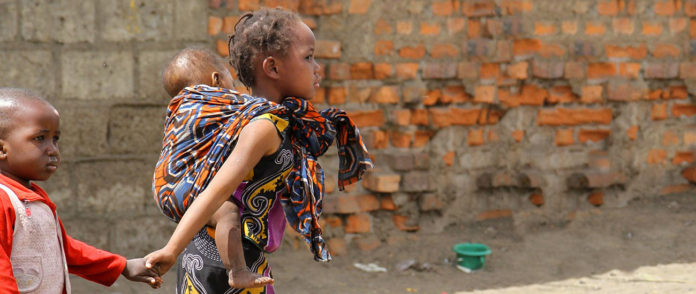One sign that a society is on the brink of decline is that children become a burden. Who will watch the children? Societies that aim to shirk responsibility for rearing its young are certainly ensuring that their posterity will experience ever precarious circumstances.
Urbanization ultimately means that children grow up in close quarters, but the tight spaces, many without any compounds, do not guarantee that the people living there have close relations.
All day, both men and women report to work. For whom? Most cannot reply with a knowledgeable answer. While they work to receive paper compensation from phantom overseers with phantom currencies of digits, they are implicitly encouraged to disregard their youth.
Raising children means they will have less time to devote to work and less currency to spend on themselves. So goes the logic: children are expensive. Who will watch the children anyway while everyone is at work? Within close quarters of strangers in cities, there is no one to trust with the children. Day cares, good ones especially, have rising costs.
To work or to have children is a common set of options that presents a dilemma. To work often means to have just enough currency to afford childcare and nothing more.
Long before and even still in villages, children are not a burden at work. They are welcomed company on the farms. In some contexts, children are well-integrated into the fabric of society. In others, they are excess pieces on the cutting room floor.
The question of who will watch the children brings stress to many families today. As a consequence, they opt for one child or none—at the most two. Demographers scratch their heads at this shift in populations. Two or fewer children is not conducive to successful replacement of current populations.
Two or fewer children per couples means that the population will inevitably shrink. Of course, whether shrinking population is a benefit or a scourge depends on who you ask and about whom you are asking.
The United Nations, for example, parades an anthem of girl child education to encourage African girls to delay childbearing or put off childbearing altogether, in order to read English books in English schools for the ultimate goal of working for the phantom leaders of multinational corporations. On the other foot, countries like Norway and Israel pay families money for each child they have. Israel’s government even covers all the costs for unlimited in vitro fertilization for women who are trying to have children.
Communal societies understand the importance of childrearing for future generations and so do not off load the responsibility of childrearing decisions to individuals but hold entire communities to account for youth upbringing. The individual mentality shapes people to think about their families and their households—they have little care for anyone outside of their small social world.
Communes are the work of thousands of years of civilization, which have revealed that collective group actions are better for more people than individual selfish acts. Traditional communes operate for the benefit of the entire village. Modern governments are implored to do the same if they are to realize the full potential of their societies and its unity with the surrounding environment.
Governments that are thinking dearly about their posterity do everything they can to ensure their progress, while at once, persuading others from doing the same. Who will watch the children? Certainly governments have an increasing role to protect children and provide for their common welfare. Governments that pass on this responsibility to others only have themselves to blame when the upbringing of a nation goes by the wayside and children who become leaders easily succumb to the whims of outsiders.
We should all be concerned about who is watching our children. Children and their upbringing are central to the prosperity of societies. When societies do not make the task of raising and providing for children an integral part of community life, they risk the advancement of the society at large.
Children are the bright beacons of our futures. The task of childrearing is not (or at least should not be) an undue burden on individuals but rather a social responsibility embraced by all—from our local communities to our governments.










